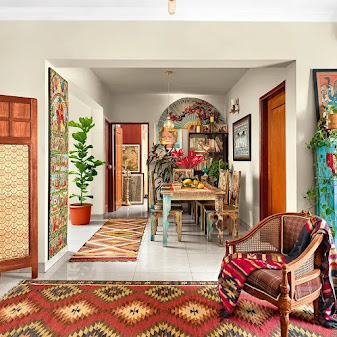Minimalist Lifestyle Trends in India: Embracing Simplicity and Intentional Living
In recent years, the minimalist lifestyle has gained considerable traction in India, reflecting a global shift towards simplicity and intentional living. Rooted in the philosophy of reducing excess and focusing on what truly matters, minimalism is more than just a design aesthetic—it’s a lifestyle choice that emphasizes quality over quantity and mindfulness over materialism. In a country as diverse and dynamic as India, the minimalist movement is transforming how people live, work, and interact with their environment.
This blog explores the rise of minimalist lifestyle trends in India, examining how they are influencing various aspects of life and the reasons behind their growing popularity.
RX REJUVENATE, THE BEST SKINCARE CLINIC LOCATED IN NORTH DELHI IS ONE OF THE GREAT SUPPORTER AND FOLLOWER OF MINIMALIST LIFESTYLE TRENDS WHICH LEADS THE PATHWAY TO NATION’S EMPOWERMENT AND ENCOURAGING US TO DELIVER MORE EFFICIENT AND TARGETED RESULTS TO OUR CLIENTS.
1. Understanding Minimalism
At its core, minimalism is about simplifying one’s life to focus on essential values and experiences. It involves decluttering physical spaces, reducing consumerism, and prioritizing quality over quantity. Minimalists often aim to reduce their material possessions, live more sustainably, and create a more purposeful life.
In India, minimalism manifests in various ways, from decluttered living spaces and eco-friendly practices to mindful consumption and intentional living.
 2. The Rise of Minimalist Living Spaces
2. The Rise of Minimalist Living Spaces
One of the most visible aspects of minimalism in India is the trend towards minimalist living spaces. Urban areas like Mumbai, Delhi, and Bangalore are seeing a rise in minimalist home designs that prioritize clean lines, functional furniture, and uncluttered spaces. This shift is driven by several factors:
- Urbanization and Space Constraints: As cities grow and living spaces become smaller, the need for efficient use of space has led many to embrace minimalist home designs. Minimalist interiors often feature multi-functional furniture, neutral color palettes, and a focus on maximizing space.
- Environmental Consciousness: With increasing awareness about environmental issues, many people are opting for sustainable and eco-friendly living solutions. Minimalist homes often incorporate sustainable materials, energy-efficient appliances, and waste-reducing practices.
- Mental Well-being: A clutter-free environment is believed to contribute to mental well-being by reducing stress and enhancing focus. This understanding has led to a growing number of people seeking simplicity in their living spaces to promote a sense of calm and clarity.
3. Minimalism in Fashion and Personal Style
The minimalist trend is also making waves in the fashion industry. Indian fashion is seeing a shift towards minimalist styles that emphasize simplicity, elegance, and timelessness. Several factors reflect this trend:
 Neutral Palettes and Simple Silhouettes: Minimalist fashion often features neutral color palettes and simple, clean lines. Designers focus on creating versatile pieces to mix and match, reducing the need for excessive wardrobes.
Neutral Palettes and Simple Silhouettes: Minimalist fashion often features neutral color palettes and simple, clean lines. Designers focus on creating versatile pieces to mix and match, reducing the need for excessive wardrobes.- Ethical and Sustainable Fashion: Indian fashion brands are adopting minimalist principles by ethically sourcing and producing environmentally friendly clothing. This includes using sustainable materials, reducing waste, and supporting fair labor practices.
- Capsule Wardrobes: The concept of a capsule wardrobe—a small collection of versatile clothing items—has gained popularity among fashion enthusiasts in India. By curating a smaller, high-quality wardrobe, individuals can simplify their fashion choices and reduce their environmental impact.
4. Mindful Consumption and Minimalist Shopping
The minimalist lifestyle encourages mindful consumption and a shift away from consumerism. In India, this is evident in several ways:
- Decluttering: The process of decluttering—getting rid of items that no longer serve a purpose—has become a popular practice. Influencers and lifestyle coaches are advocating for decluttering as a way to create more space and reduce mental clutter.
- Intentional Purchases: Minimalists focus on making intentional purchases that add value to their lives. This includes investing in high-quality, durable products rather than opting for cheap, disposable items.
- Local and Artisanal Products: There is a growing interest in supporting local artisans and purchasing handcrafted, sustainable products. Minimalists often seek out unique, well-crafted items that reflect their values and support local economies.
 5. Minimalist Travel and Experiences
5. Minimalist Travel and Experiences
Minimalism is not limited to physical spaces and possessions; it also extends to how people approach travel and experiences. In India, the trend towards minimalist travel is gaining momentum:
- Simplified Travel Plans: Many travelers are opting for minimalist travel experiences that focus on meaningful interactions and immersive experiences rather than accumulating souvenirs. This includes opting for slow travel, staying in eco-friendly accommodations, and embracing local cultures.
- Mindful Experiences: Minimalists prioritize experiences that enrich their lives and align with their values. This could involve participating in yoga retreats, attending mindfulness workshops, or exploring nature.
6. Challenges and Criticisms
While the minimalist lifestyle offers many benefits, it is not without its challenges and criticisms:
- Cultural Context: In a country with rich cultural traditions and diverse lifestyles, the minimalist approach may not always align with traditional practices and social norms. Balancing minimalism with cultural values can be challenging.
- Economic Factors: For some, embracing minimalism may be difficult due to economic constraints. The initial cost of high-quality, sustainable products can be prohibitive for those with limited budgets.
- Misinterpretation: Minimalism can sometimes be misinterpreted as an extreme lifestyle choice rather than a practical approach to simplifying one’s life. It’s important to approach minimalism in a way that aligns with individual needs and circumstances.
 7. The Future of Minimalism in India
7. The Future of Minimalism in India
As the minimalist lifestyle continues to gain popularity, it is likely to influence various aspects of Indian society. The focus on simplicity, sustainability, and intentional living resonates with growing environmental and social consciousness. With increasing awareness and acceptance, minimalism is poised to become an integral part of the Indian lifestyle, shaping how people live, work, and interact with their surroundings.
Conclusion
The minimalist lifestyle is more than a trend; it represents a shift towards intentional living and a reevaluation of what truly matters. In India, this movement is influencing everything from home design and fashion to consumption habits and travel. By embracing minimalism, individuals and businesses are finding new ways to enhance their quality of life, reduce their environmental footprint, and create more meaningful experiences. As the minimalist movement continues to evolve, it holds the promise of fostering a more thoughtful, sustainable, and fulfilling way of living in India.



